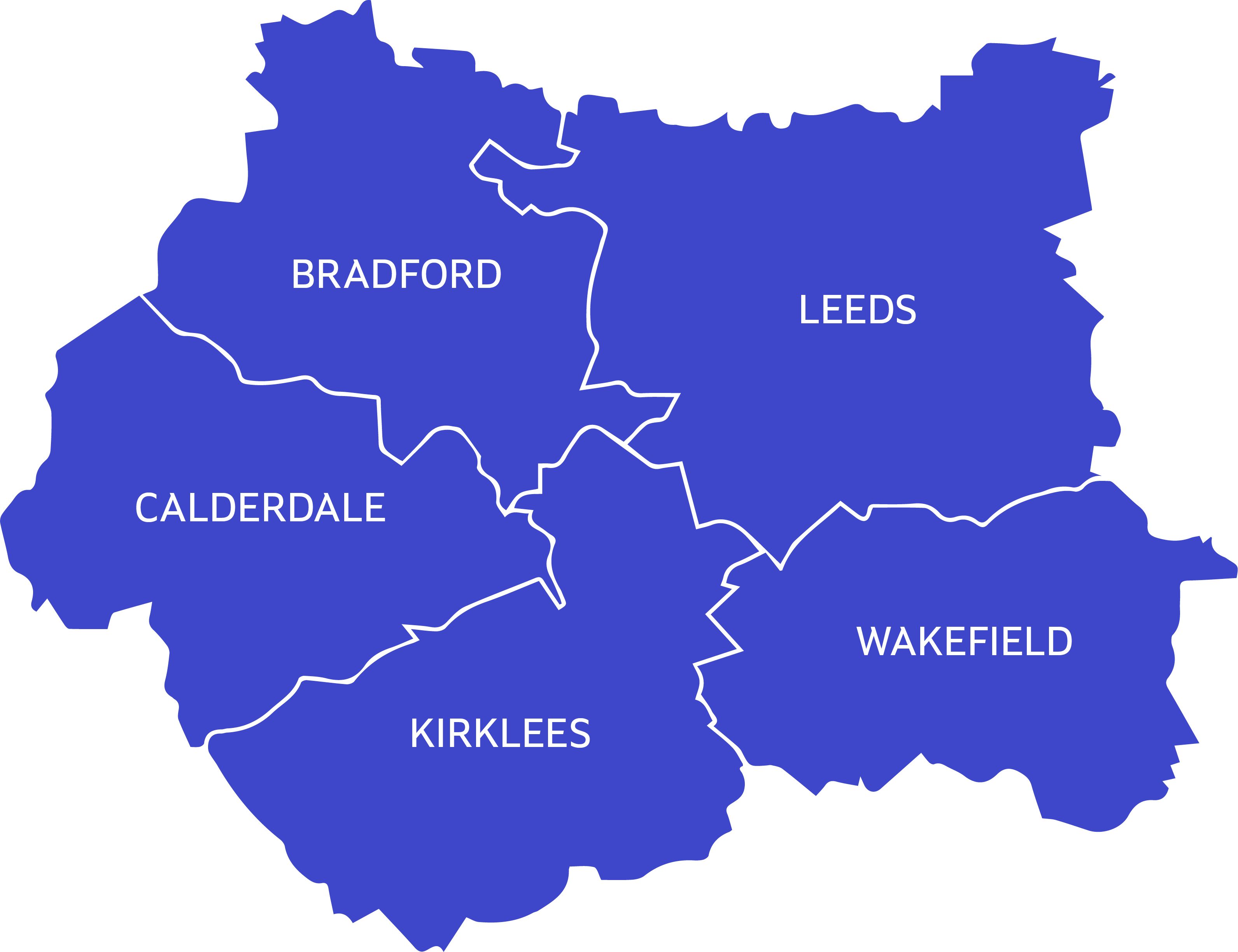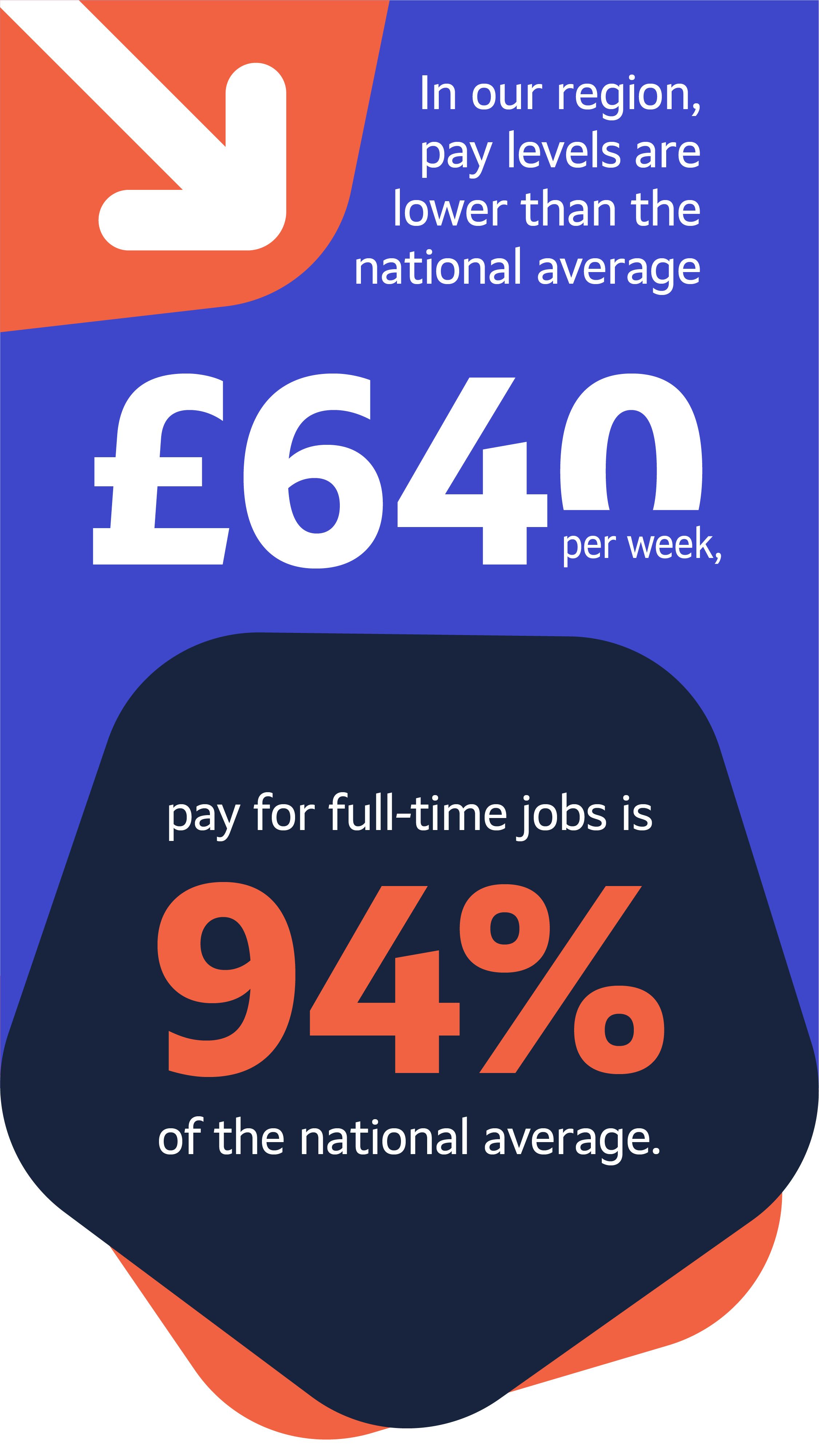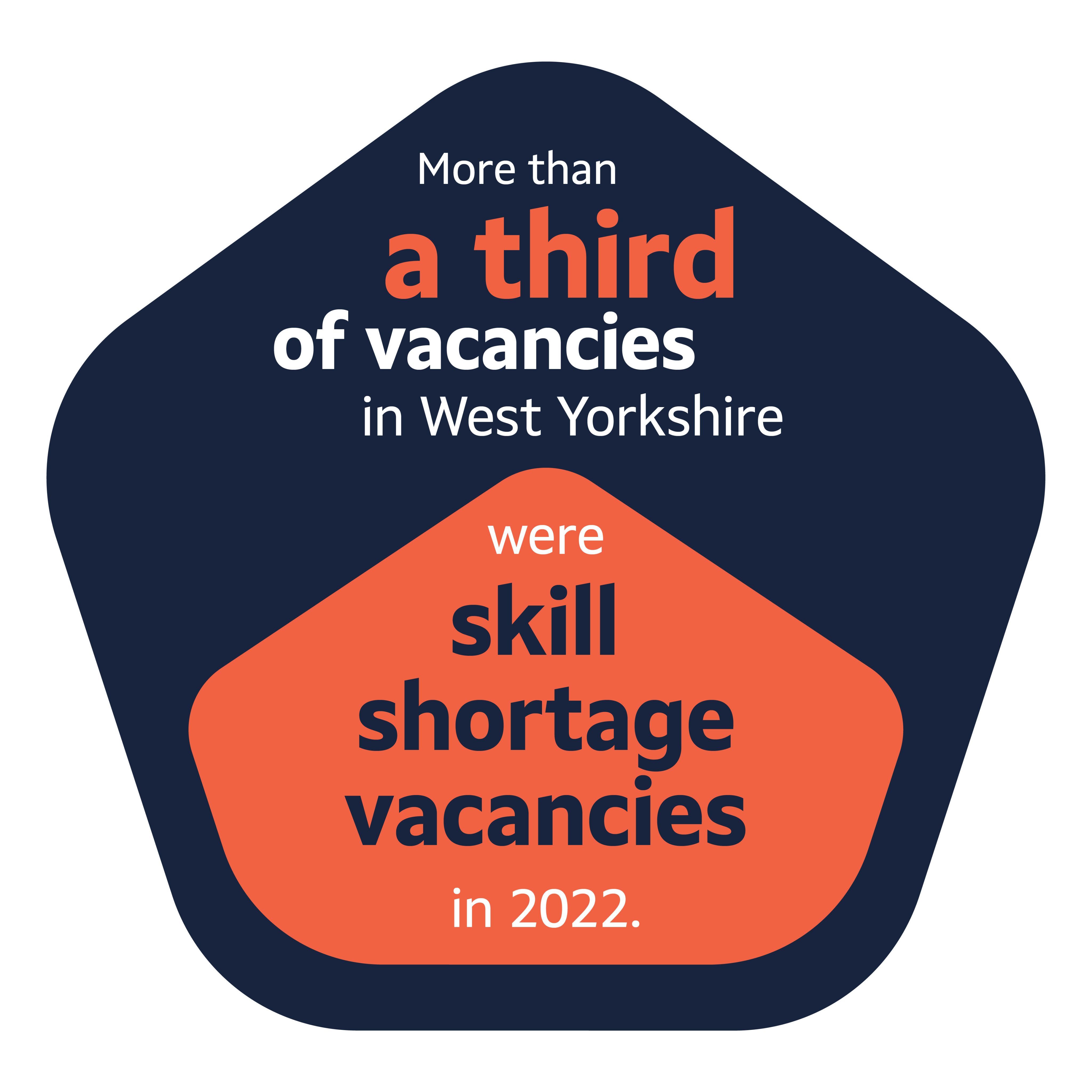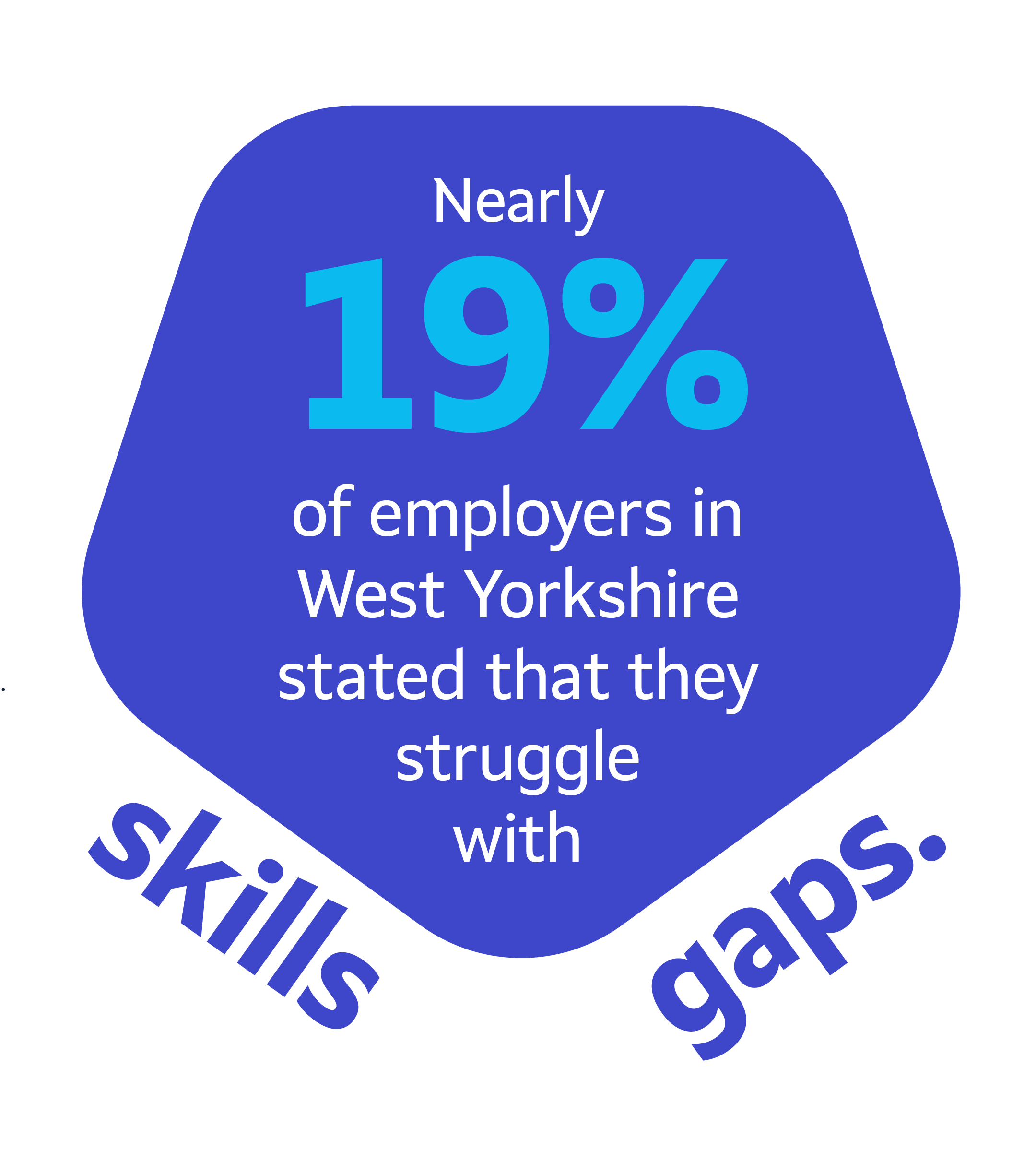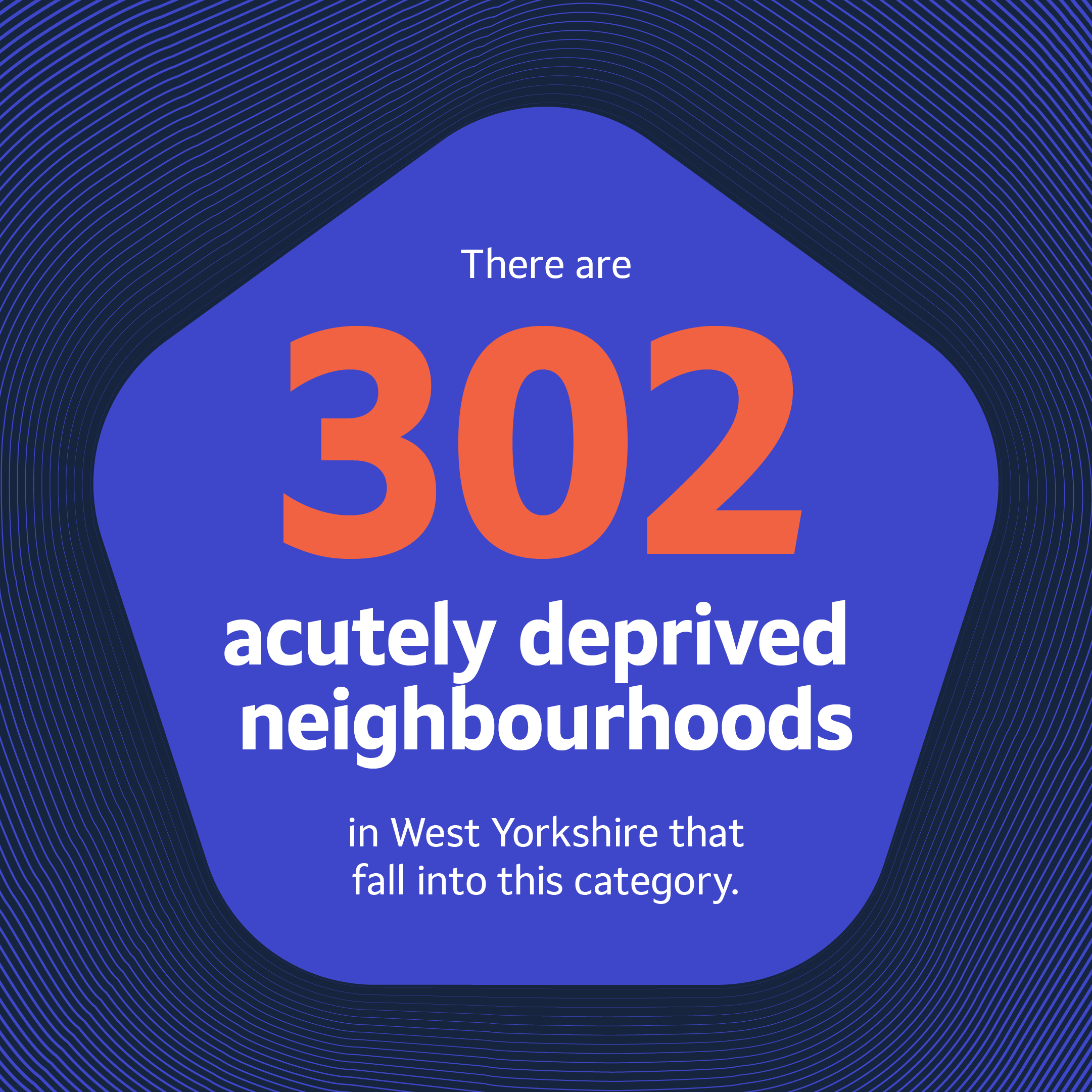West Yorkshire’s labour market
in 2024

What is Labour Market Information?
Labour Market Information (LMI) is all about understanding the world of work and jobs.
It shows you what’s happening right now in the local job market. It helps you see what jobs are in demand, where there might be opportunities, and which skills will help you stand out when you're applying for jobs, making it easier to plan your career and make smart choices.
Why should I read the report and how do I use it?
This report is meant to help shape decisions about education and training in the region. Businesses can use the information to plan how they hire and train people, while teachers and advisors can use it to guide young people in planning their future careers.
You can explore the different sections of the report by scrolling through or jump to the parts that interest you by using the navigation bar at the top. To see the full report, click the link below:
The local landscape

West Yorkshire is a vibrant, internationally significant economy, with a population of 2.38 million, an economy worth £67 billion, over 90,000 businesses and more than 1.2 million jobs.





Pay levels
We look at 'pay levels' to see how much people are earning in different jobs across the region. This is important because it helps you understand what kind of salary you could expect in certain careers.
Knowing pay levels is useful for a few reasons:
01. Career planning
If you know which jobs pay well and which ones don’t, you can make better choices about what career you want to go into based on your goals and lifestyle.
02. Job comparison
It helps you compare different jobs or industries. For example, you might want to know if a job you’re interested in pays more or less than other options.
03. Cost of living
Pay levels can also give you an idea of whether a certain salary is enough to live comfortably in your area, considering things like rent, food, and transport.
Overall, knowing the pay levels in your region helps you make smarter choices about your future career and financial goals.
In our region, pay levels are lower than the national average. At £640 per week, pay for full-time jobs is 94% of the national average.
There are areas for minor improvement in terms of the gender pay gap. Our region’s gender pay gap sits at 16%, compared to the national average of 15% - so we’re incredibly close to the average.





Demand for skills
Knowing the demand for skills helps you plan by showing you what skills employers are looking for now and what’s likely to be needed in the future, so you can build the skills that will make you stand out.
Here's why it's so useful:
01. Helps you choose the right career
If you know what skills are in high demand, you can focus on developing them to increase your chances of getting a good job. It’s like knowing the answers before taking a test—it gives you an advantage.
02. Guides your education choices
Understanding what skills are in demand can help you decide which courses, training, or qualifications will be most useful. This way, you can focus on building skills that will help you get a job.
03. Job opportunities
When certain skills are in high demand, it often means more job openings and better pay for those roles. If you focus on the right skills, you’ll have a better chance of finding a job that suits you.
West Yorkshire’s largest sectors in terms of numbers of jobs are Health and social care, Wholesale and retail, Manufacturing and Administrative and support services.
Our region specialises in specific sectors, including Manufacturing and Financial Services. In Calderdale and Leeds, Financial and Insurance Activities are popular work areas.
Regarding the biggest occupations in our region, Business and public service associate professional, Administrative and Elementary admin, and service roles are the most popular. This also includes a large amount of the population being employed in Customer Service roles.
Looking at higher-skilled occupations, our region is still slightly behind in roles within sectors like Business, media and public service professionals and Culture, media & sports.
Areas seeing the most significant growth in recent years are mainly high skilled, including:
Science, research, engineering and technology - largely driven by growth in digital roles
Business, media and public service - partly driven by increased demand for Business, Research and Administrative Professionals, which includes Management consultants and business analysts. Green skills, which has grown rapidly since 2020 and includes Sustainability Managers and consultants, Recycling Workers and Solar Electricians/Installers/Project Managers.
Culture, media and sports has also seen growth.





Supply of skills
The supply of skills is just as important as the demand for skills because it helps you see where you fit into the job market and how you can stand out by building the right skills.
Here’s why it’s useful:
01. Competition awareness
Knowing the supply of skills helps you understand how many people are competing for the same jobs. If lots of people have the same skills, it might be harder to stand out.
02. Job opportunities
If there’s a big supply of certain skills but not enough jobs for them, it can be a sign to focus on developing different or more unique skills that are in higher demand.
03. Inform your career choices
By understanding what skills are common in your area, you can decide whether to enter a popular field or specialise in something that fewer people are doing, which can make you more attractive to employers.
Our workforce is changing.
For example, older people have become increasingly important in employment. Recently, three-quarters of the increase in employment has come from people aged 50-64, and the number of over 65 has increased rapidly.
The number of disabled people of working age is growing strongly, as is the number of disabled people in employment, both locally and nationally.
However, West Yorkshire still needs to focus on its skills base.
Young people and their level of qualifications is an area of focus.
Looking at opportunities for young people, apprenticeships are a popular choice in our region.
Higher apprenticeships grew by 11% during 2022/23. Apprenticeships like this include Business, administration and law (primarily management apprenticeships) and Health, public services and care.
Although West Yorkshire has an above-average apprenticeship entry rate overall following both Key Stage 4 and Key Stage 5, disadvantaged pupils are less likely to enter an apprenticeship than other pupils at both stages.





Skills supply and demand
Understanding how many people have certain skills and how many employers need those skills helps you make smarter decisions about your education, training, and career path:
01. Career planning
If the demand for certain skills is higher than the supply, it means not enough people have those skills. This can be a great opportunity for you to step in and fill that gap, making it easier to get a job.
02. Job market balance
On the flip side, if there are lots of people with the same skills (high supply) but not enough jobs needing them (low demand), it can be harder to find work. This helps you avoid going into a field that’s already crowded.
03. Choosing the right skills
By looking at both supply and demand, you can figure out which skills are worth investing time in. If a skill is in high demand but low supply, it can be smart to focus on learning it since you'll have a better chance of getting hired and might even earn more.
Skill shortages are job vacancies that are difficult to fill due to a lack of people with the required skills. More than a third of vacancies in West Yorkshire were skill shortage vacancies in 2022.
Employers seem to find skills like specialist, job-specific skills and knowledge the hardest to find at times.
Skills gaps are slightly different from skills shortages. Skills gaps happen when existing employees lack all the skills needed to do their jobs to the best of their ability. Nearly 19% of employers in West Yorkshire stated that they struggle with skills gaps.
Pay
Although West Yorkshire’s average pay is growing and is relatively high at £621 – or 91% of the national average – there is still room for improvement.
Currently, the highest-paid jobs in our region are paid less than the highest-paid jobs nationally and around 130,000 jobs in the region pay below the Real Living Wage (a wage based on the current cost of living).
West Yorkshire’s gender pay gap is similar to the England average.
Disadvantaged areas
Like most of the country, West Yorkshire has areas of deprivation. 22% of neighbourhoods in West Yorkshire are among the 10% most deprived nationally.
There are 302 acutely deprived neighbourhoods in West Yorkshire that fall into this category.
Skills deprivation relating to adults is a key issue for West Yorkshire.
Unemployment
Getting people into work is really important for our region’s growth and boosting individual living standards. Currently, unemployment remains well above pre-pandemic levels and our official unemployment rate is similar to the national average, but it is likely that the rate is now rising.

Understanding what roles and skills are in demand is important to help plan your training and career choices. The local job market is changing with more demand for higher level skills, and specific skills like digital skills being required for many roles.
Investing time in relevant training available from places like FutureGoals can help you stand out from other candidates when searching for your next job.
To find out more follow:


